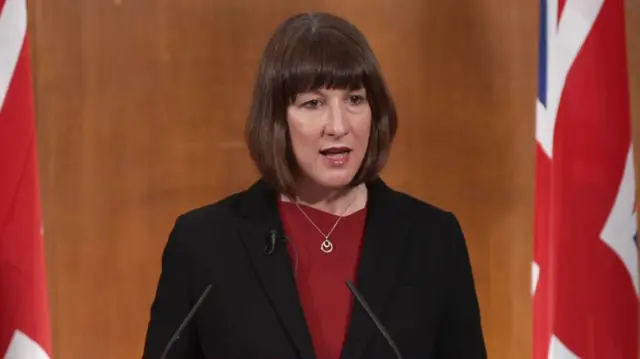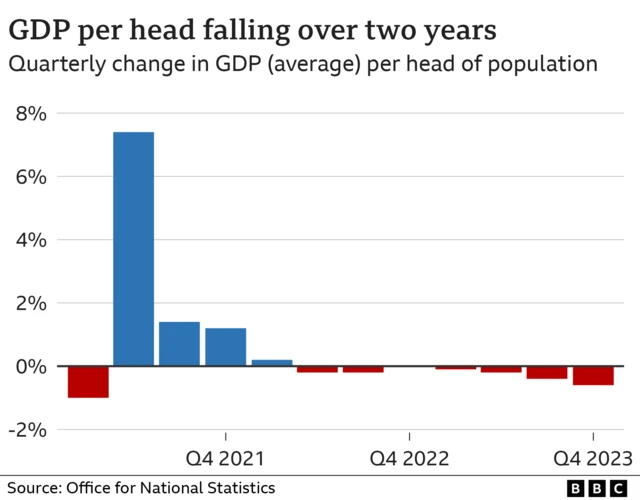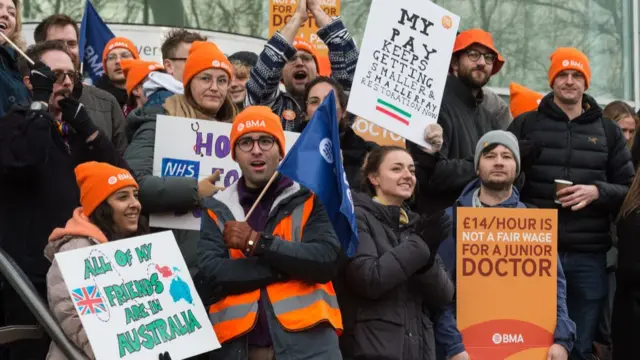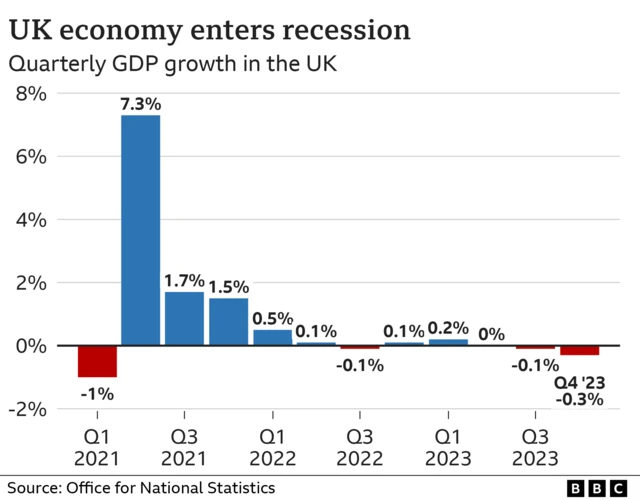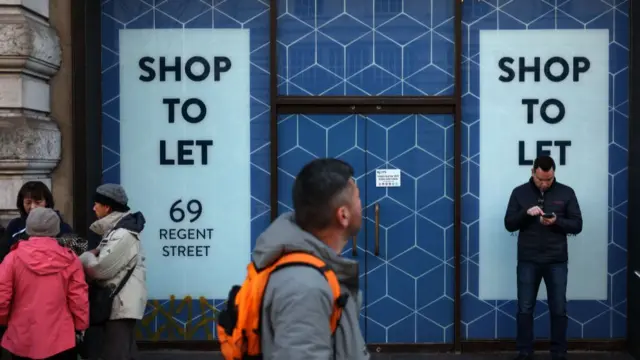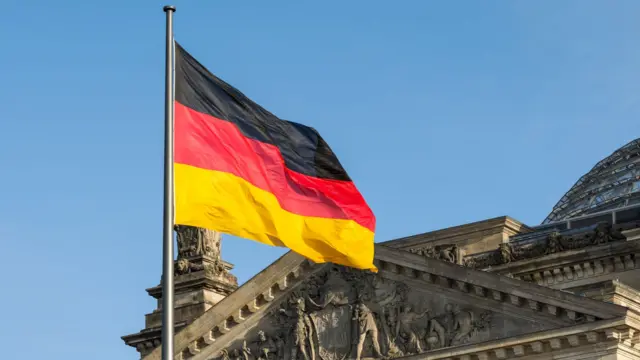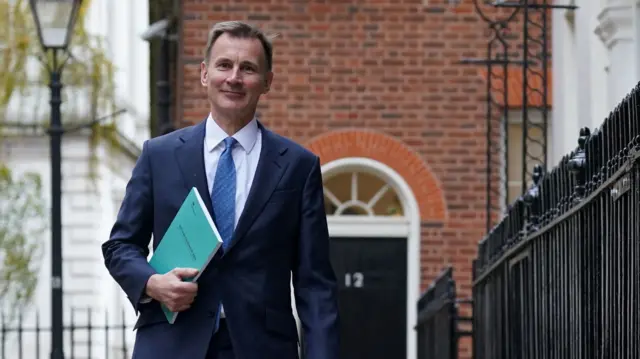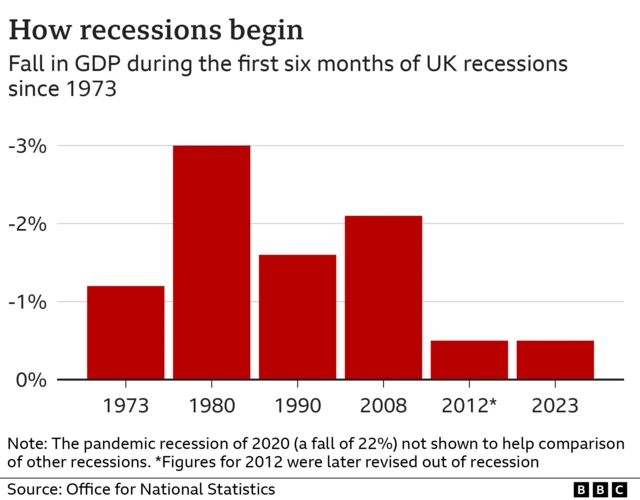
Labour keen to make today's figures a political momentpublished at 11:43 GMT 15 February 2024
 Helen Catt
Helen Catt
Political correspondent
Choosing to call a news conference, rather than responding in an interview, is a statement in itself - and it's one shadow chancellor Rachel Reeves made today (see our last couple of posts).
It’s an opportunity for Labour to seize the initiative and shift the focus onto the Conservative's troubles after a difficult week.
It also gives Labour a chance to pin this on PM Rishi Sunak personally - and to draw a distinction with what Labour would do.
But it has also invited questions on exactly how Labour would approach this differently. Rachel Reeves's answer: stability, investment and reform.
The party is likely to come under pressure to explain those individual measures more fully.
Rachel Reeves: This is Rishi's recession
